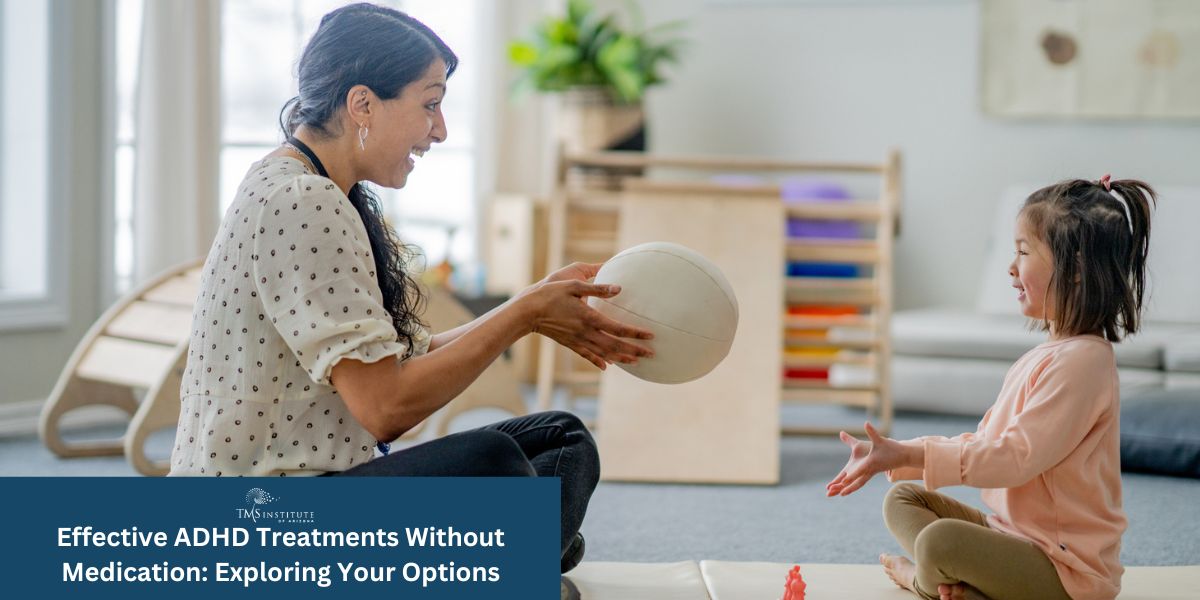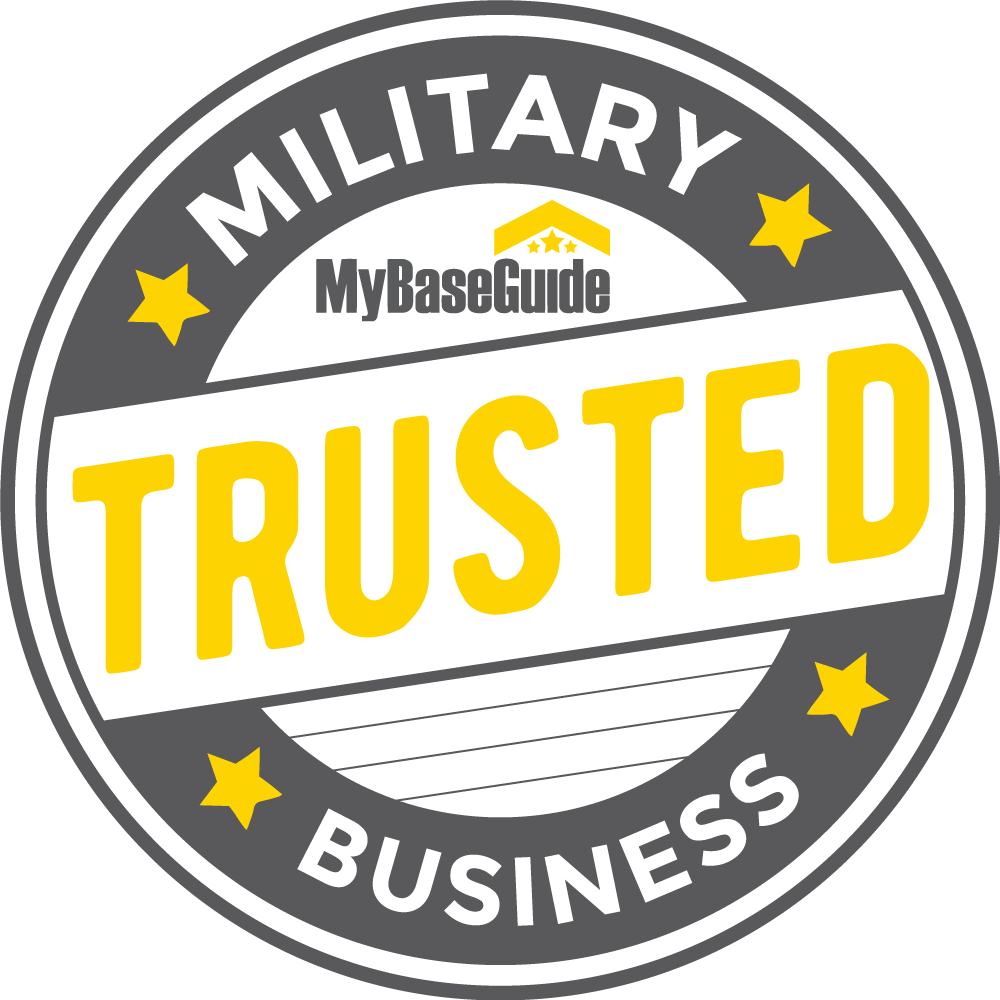
ADHD affects 8.4% of children and 2.5% of adults globally. Medication is often a go-to solution. But it doesn’t work for everyone. Many people face challenges with side effects or limited results.
Families and individuals are actively searching for options beyond pills. Alternatives that tackle inattention, impulsivity, and hyperactivity are making a real difference.
What Are the Signs of ADHD?
Attention-Deficit/Hyperactivity Disorder (ADHD) is a neurodevelopmental condition that affects focus, impulse control, and activity levels. Both children and adults can be affected. Often presenting differently across age groups.
However, boys are more commonly diagnosed with ADHD during childhood. Many women, on the other hand, face underdiagnosis or aren’t diagnosed until later in life.
Anxiety, depression, and learning disorders often make diagnosing ADHD more challenging. These co-existing conditions blur symptom patterns, creating hurdles for accurate assessment.
Here’s what to look out for:
Key Signs of ADHD in Children and Adults:
- Inattention:
- Difficulty maintaining attention during tasks or play.
- Frequent careless mistakes in schoolwork or professional tasks.
- Appearing not to listen when spoken to directly.
- Losing items needed for daily tasks, such as keys, homework, or tools.
- Hyperactivity:
- Inability to stay seated when expected.
- Excessive talking or interrupting conversations.
- Constant fidgeting or tapping hands and feet.
- Running or climbing in inappropriate settings.
- Impulsivity:
- Speaking out of turn or blurting answers.
- Struggling to wait for one’s turn in games or queues.
- Making hasty decisions without considering long-term consequences.
Subtypes of ADHD:
- Predominantly Inattentive Presentation: Focus issues are more prominent.
- Predominantly Hyperactive-Impulsive Presentation: High energy and impulsive behaviors dominate.
- Combined Presentation: Features both inattentive and hyperactive-impulsive traits.
TMS Therapy: ADHD Treatment Without Medication
TMS offers a proven way of managing ADHD without medication. Magnetic pulses stimulate brain areas that control attention and behavior. Research supports its potential for those seeking non-drug solutions.
How TMS Works
A magnetic coil is placed near the scalp to deliver precise pulses to specific brain regions. In ADHD treatment, the focus is on the dorsomedial prefrontal cortex. This area is important for attention, decision-making, and impulse management.
Evidence Supporting TMS for ADHD
- Improved Attention and Processing Speed: A meta-analysis of five randomized controlled trials (RCTs) with 189 participants revealed notable improvements in sustained attention (effect size: 0.54, p=0.001). Processing speed also increased significantly, with an effect size of 0.59 (p=0.002). Findings indicate that TMS effectively targets and improves key cognitive functions impacted by ADHD.
- Reduction in Symptoms: A 22-year-old male with ADHD experienced a 50% reduction in symptom scores after just two weeks of daily rTMS sessions. Follow-up evaluations at one and three months showed that the improvements were sustained. No side effects were reported throughout the treatment or follow-up period.
- Safe and Non-Invasive: Unlike medications, TMS avoids the risk of systemic side effects. Non-invasive and gentle, it doesn’t require anesthesia. Sessions are quick. No downtime needed for recovery.
Who Can Benefit from TMS Therapy?
TMS therapy treats mental health and neurological conditions unresponsive to traditional treatments.
- Adults Seeking Alternatives to Medications: Many adults with ADHD choose to avoid stimulants because of uncomfortable side effects. Concerns about dependency often make non-medication options more appealing.
- Children and Adolescents: Younger populations, with an average age of 8.53 years in studies, show notable improvements in attention spans. These gains come without the potential risks associated with pharmaceuticals.
- Individuals Needing Rapid Results: Accelerated TMS offers faster symptom relief, making it ideal for individuals juggling demanding schedules. Perfect for those balancing work, school, or other responsibilities where time matters.
Accelerated TMS
Accelerated TMS transforms the traditional technique with shorter, more intensive treatment sessions. Designed for individuals with busy lives, it offers a faster way to relief. Perfect for those who want results without waiting weeks to see progress.
Benefits of Accelerated TMS
- Faster Symptom Relief: Traditional TMS protocols often require weeks of treatment. Accelerated schedules deliver similar benefits in a fraction of the time.
- Enhanced Compliance: Shorter treatment durations reduce dropout rates and improve patient satisfaction.
- Tailored Protocols for ADHD: High-frequency stimulation at 10 Hz targets the right dorsomedial prefrontal cortex with precision. Accelerated TMS delivers rapid attention and impulse control improvements through this focused strategy. Results are both effective and time-efficient.
Why Choose TMS Therapy for ADHD?
- No Risk of Dependency: Unlike stimulant medications, TMS does not pose a risk of addiction.
- Fewer Side Effect: Common ADHD medications can cause appetite suppression, sleep issues, or mood swings. TMS avoids these complications.
- Complementary Treatment: Can be combined with other non-drug interventions like CBT or neurofeedback.
MeRT Therapy: A Personalized Approach for ADHD
In addition to TMS, MeRT (Magnetic e-Resonance Therapy) also offers another cutting-edge option for managing ADHD. MeRT customizes treatment by using an EEG (electroencephalogram) to map brainwave activity. This method provides precise stimulation, improving cognitive function, attention, and behavior.
Why Consider MeRT for ADHD?
- Personalized Protocols: Treatment is based on an individual’s unique brainwave activity.
Enhanced Cognitive Function: Improves attention and impulse control through precision targeting.
Drug-Free Alternative: Offers a safe, non-invasive option for children, teens, and adults.
Can Lifestyle Changes Help Manage ADHD Symptoms?
Lifestyle changes can help manage ADHD symptoms and work well with treatments like TMS or therapy. They create structure, boost focus, and improve daily life. Even small adjustments can make a big difference.
1. Regular Exercise
Physical activity is a powerful tool for managing ADHD symptoms. Aerobic exercises like running, cycling, or swimming boost dopamine and norepinephrine levels. These neurotransmitters are essential for improving attention and focus. Research shows that consistent exercise helps reduce hyperactivity. Cognitive functions also improve significantly, especially in children and young adults.
2. Balanced Nutrition
Cutting back on sugar, artificial additives, and processed foods can make a noticeable difference. Boosting omega-3 fatty acids through foods like fish, flaxseed, and walnuts has shown promise. Research links omega-3s to better attention and sharper cognitive skills. Small dietary changes may lead to significant improvements in focus and behavior.
3. Adequate Sleep
A steady bedtime routine can bring noticeable improvements in focus and mood. Creating a calming, sleep-friendly environment helps the mind wind down effectively. Caffeine and late-night screen time can sabotage sleep quality and should be avoided. Simple changes to sleep habits can make a big difference in managing ADHD challenges.
4. Mindfulness and Meditation
Mindfulness practices help improve self-regulation, attention span, and emotional control. Even brief daily meditation sessions can reduce stress and impulsivity. It is easier to manage ADHD symptoms.
5. Time Management Strategies
Planners, alarms, and task lists create structure and keep things on track for individuals with ADHD. Breaking big tasks into smaller, bite-sized pieces makes them less intimidating. Wins like these build confidence and drive productivity forward.
6. Social and Emotional Support
Strong social networks offer emotional support and hands-on help when it’s needed most. Joining therapy groups can build understanding and create space for shared experiences. ADHD coaching gives individuals tools to develop coping strategies and stay accountable.
The Role of Consistency
Consistency is the foundation of success. Making these lifestyle changes part of your daily routine strengthens their benefits. Small, steady adjustments can build a solid path to improvement. On their own, they may not resolve every challenge. When combined with professional care like TMS therapy, the impact can be life-changing.
Other ADHD Treatments Without Medication
Other ADHD treatments without medication also offer valuable alternatives for those seeking non-pharmaceutical options. Here are some non-medication treatments for ADHD:
- Behavioral Therapy: Focuses on practical ways to manage symptoms and boost organization skills. Uses positive reinforcement to encourage productive behaviors. Includes strategies designed to help reduce impulsivity and improve daily life.
- Cognitive Behavioral Therapy (CBT): Targets negative thought patterns with accuracy. Helps individuals build practical strategies to manage emotions and improve focus.
- Parent Training and Education Programs: Parent training programs help parents to support their child’s growth and development. Learn effective communication, discipline strategies, and ways to encourage positive behavior.
- Educational Interventions: Educational programs designed with accommodations can make a significant difference for individuals with ADHD. Offering extended time for tasks or quiet spaces helps create an environment where learning feels achievable and less overwhelming.
- Mindfulness and Meditation: Mindfulness and meditation enhance focus and help reduce impulsivity. Research shows these practices improve attention spans for both children and adults with ADHD. Simple yet powerful, they offer a natural way to regain control and calm the mind.
- Exercise and Physical Activity: Regular aerobic activity increases dopamine levels, improves focus, and reduces hyperactivity. Exercise provides a natural and effective way to manage ADHD symptoms. Consistent movement can make a noticeable difference.
- Dietary Modifications: Reducing processed sugars can help stabilize energy levels and behavior. Adding omega-3 fatty acids to your diet may boost concentration and support brain health.
Consult Our Experts: Why the TMS Institute of Arizona Stands Out
The TMS Institute of Arizona provides solutions like Accelerated TMS Therapy to effectively address ADHD. Our highly trained team focuses on tailoring care to meet individual needs. As one of the few centers using specialized protocols, we are dedicated to innovation, safety, and proven results.
Choosing TMS as a medication-free alternative can lead to improved focus and balance. Our experts are here to guide and support you.
References
Chen, Y.-H., Liang, S.-C., Sun, C.-K., Cheng, Y.-S., Ruu‐Fen Tzang, Chiu, H., Wang, M.-Y., Cheng, Y.-C., & Hung, K.-C. (2023). A meta-analysis on the therapeutic efficacy of repetitive transcranial magnetic stimulation for cognitive functions in attention-deficit/hyperactivity disorders. BMC Psychiatry, 23(1). https://doi.org/10.1186/s12888-023-05261-2
Chen, Y.-H., Liang, S.-C., Sun, C.-K., Cheng, Y.-S., Ruu‐Fen Tzang, Chiu, H., Wang, M.-Y., Cheng, Y.-C., & Hung, K.-C. (2023). A meta-analysis on the therapeutic efficacy of repetitive transcranial magnetic stimulation for cognitive functions in attention-deficit/hyperactivity disorders. BMC Psychiatry, 23(1). https://doi.org/10.1186/s12888-023-05261-2
Modesto-Lowe, V. (2015). Does mindfulness meditation improve attention in attention deficit hyperactivity disorder? World Journal of Psychiatry, 5(4), 397–397. https://doi.org/10.5498/wjp.v5.i4.397
- Asimoglou, A. Tsakiri, P. Gkikas, S. Kalimeris, & G. Karampoutakis. (2021). Effects of repetitive transcranial magnetic stimulation in the treatment of attention-deficit hyperactivity disorser: A case study. European Psychiatry, 64(S1), S492–S493. https://doi.org/10.1192/j.eurpsy.2021.1317
Mehren, A., Reichert, M., Coghill, D., Helge, Braun, N., & Philipsen, A. (2020). Physical exercise in attention deficit hyperactivity disorder – evidence and implications for the treatment of borderline personality disorder. Borderline Personality Disorder and Emotion Dysregulation, 7(1). https://doi.org/10.1186/s40479-019-0115-2













